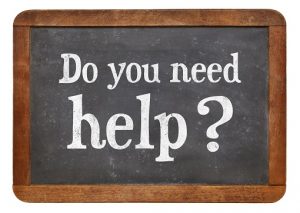“Self-taught” refers to people who learned a subject without formal lessons in classrooms. And that’s why self-taught language learners get get so much respect. If you been able to put together your own personalized curriculum of books, audio recordings, teaching videos, flashcards, etc, and you also learned the language successfully, then that is a big undertaking. You’ve taken a special kind of initiative outside of the classroom, and so you get a special kind of “extra credit” from society.
But before you take all the credit for yourself, let’s look at how you got there. Even if you were “self-taught”, the most important study resources you used were probably created by teachers. Also, most people who are successfully “self-taught” pay a tutor for lessons. Like it or not, you have to rely on teachers no matter what study route you take.
Sidenote: The best example I know of someone who is self-taught in Cantonese is Luke Truman, who kept a public diary of his language learning process. If you haven’t watched it yet, it’s really impressive, and I have personally learned a lot from what he’s shared. You can see it all on Luke Truman’s YouTube Channel.
While it’s possible to learn Cantonese without taking formal classes, you can’t learn successfully without people to “teach” you in various ways. As an example, we’ll look at your experience learning your native language.
 Yes…we all need help to learn a language!
Yes…we all need help to learn a language!
You’ve Already Had A Lot Of Language Teachers
For the first years of your life, your main language teachers were probably your parents. And you had supplementary lessons from relatives and family friends. You needed their input and correction in order to say practically anything correctly.
After a couple years, you started making your own friends, and learned new words and ideas from them. By age 5 you were going to school, and you started learning from teachers and classmates.
At every point—both for your native language and foreign languages—every one of your “teachers” needed to talk to you using language that you could understand. (By the way, if you aren’t already familiar with Stephen Krashen’s theory of comprehensible input, read this.)
And now you’re an adult, and you know enough about the learning process that you can teach yourself a language, right?
In one sense, yes—you probably can. In another sense, no—absolutely not.
Teaching Looks Different Today–But You Still Have Teachers
During every tutoring session or language exchange meeting, someone has taught you. Every language book that you read was written by a teacher, with input from many other teachers. Every audio course or computer program took thousands of work-hours to compile. Behind every language app or podcast you’ve downloaded to your phone, there were people whose driving mission was to teach you a language–even though you’ll probably never meet them in person.
Teaching takes a different form because of current technology. But you still need teachers to learn a language. If we use this broader sense of teaching, then it’s clear: No, you can’t learn a language by yourself.
Language is inherently an interpersonal activity—whether it’s friends chatting over coffee, a mom singing to her baby, or a college student reading ideas shared by ancient philosophers. Every scenario where language is used provides an opportunity for teaching and for learning.

Recent Comments